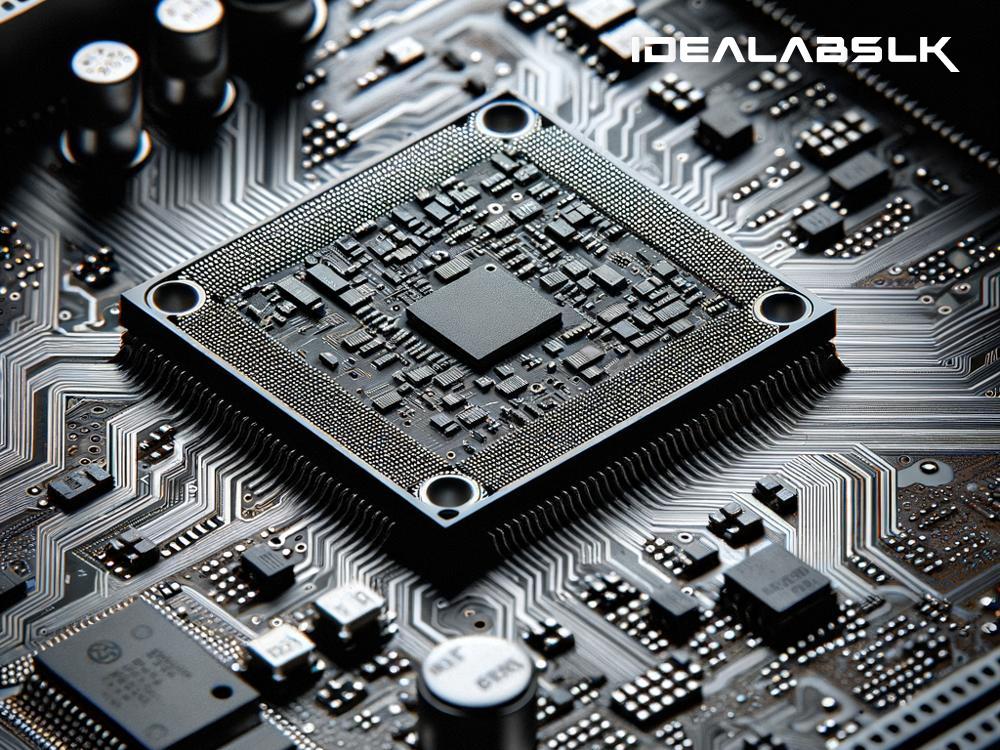The Role of Integrated Circuits in Modern Computing: Simplifying the Complex
In the bustling world of technology, where smartphones seem smarter than ever and computers perform billions of tasks in the blink of an eye, there lies a hidden hero at the heart of it all - the Integrated Circuit (IC). These tiny chips are the building blocks of modern computing, and without them, the advanced gadgets we take for granted today would simply not exist. Let's dive into the surprisingly fascinating world of integrated circuits and uncover how they've come to play such a crucial role in our everyday tech.
What Exactly is an Integrated Circuit?
Imagine you’re creating a colossal puzzle. Instead of spreading the pieces far and wide, you cleverly decide to link them together, making it easier to see the whole picture. That's essentially what an Integrated Circuit does for computing. It's a compact microchip that combines thousands, if not millions, of tiny electrical components like transistors, resistors, and capacitors onto a single, tiny silicon chip. This innovation revolutionized electronics by making devices smaller, faster, and more reliable.
The Dawn of the IC Era
The journey of ICs begins in the late 1950s, with inventors Jack Kilby and Robert Noyce at the helm. Before ICs, electronic circuits were made by individually connecting components, resulting in bulky and inefficient devices. The invention of the integrated circuit changed all that, making it possible to pack a large number of components on a small chip. This leap forward paved the way for the miniaturization of electronic devices, leading us into the digital age.
The Heartbeat of Modern Computing
Now, let's get to the crux of why integrated circuits are the unsung heroes of modern technology. Every time you swipe your smartphone, click your mouse, or tap your tablet, you're sending a flurry of electronic signals through ICs. These chips are the brains behind the operations, processing data at mind-boggling speeds to execute tasks, from the simplest calculations to the most complex algorithms.
From Room-sized Giants to Pocket-sized Wizards
In the early days of computing, machines were massive, room-sized behemoths that could do no more than basic arithmetic. Today, thanks to the marvel of integrated circuits, we have powerful computing devices that fit in our pockets. This incredible shrinkage in size, yet explosion in power, is thanks to the ability of ICs to pack an ever-growing number of transistors onto a single chip, a phenomenon famously predicted by Gordon Moore, co-founder of Intel, known as Moore's Law.
Integrated Circuits in Everyday Life
It's not just in computing where ICs make a mark; they are embedded in nearly every facet of modern life. From controlling the anti-lock braking system in your car to managing the temperature in your fridge, these tiny chips are hard at work making our lives easier, safer, and more enjoyable. They have become so ubiquitous that it's hard to find a piece of modern electronic equipment that doesn't rely on them.
The Future of ICs: Shrinking Sizes, Expanding Possibilities
As we march into the future, the journey of integrated circuits is far from over. Researchers continue to push the boundaries, developing new materials and techniques to shrink ICs even further while boosting their performance. This ongoing innovation opens up exciting possibilities, like wearable technology that monitors health in real-time, smart homes that anticipate our needs, and artificial intelligence systems that could reshape our world.
Simplifying the Complex
At their core, integrated circuits embody the essence of simplifying complexity. By integrating countless components into a compact form, they've enabled the explosion of digital technology that shapes our current reality. The role of ICs in modern computing is monumental, acting as the tiny, yet mighty, engines driving the innovation train forward.
So next time you marvel at the latest tech gadget or appreciate the convenience of modern electronics, remember the integrated circuit - the unsung hero quietly powering our digital lives.

